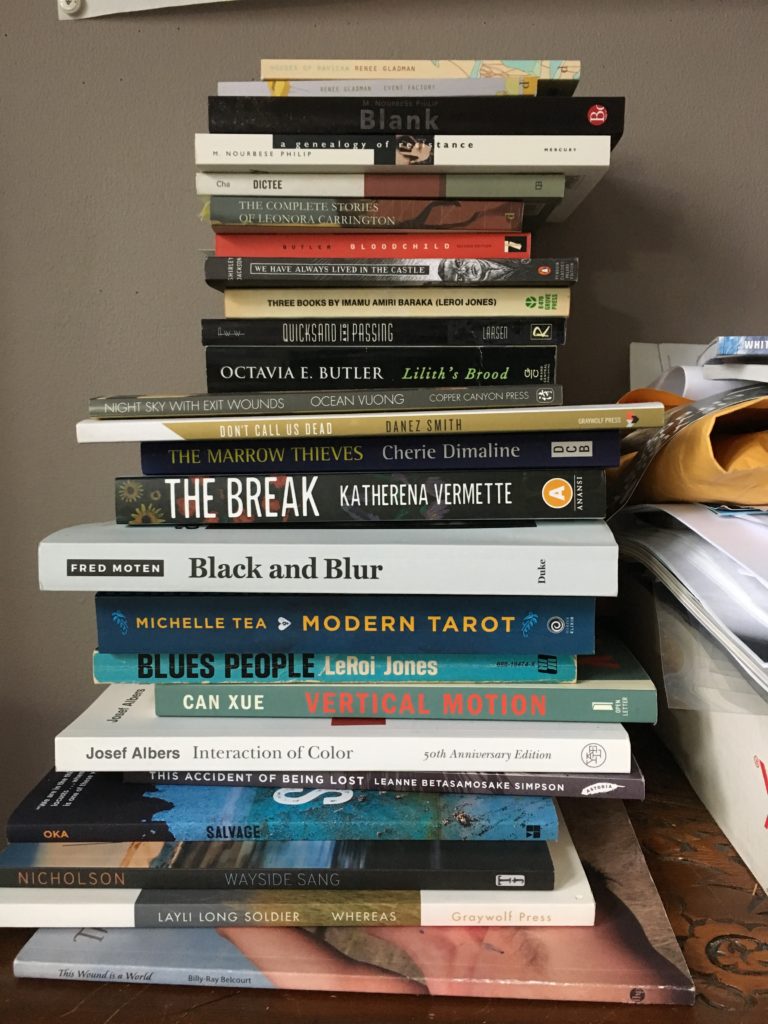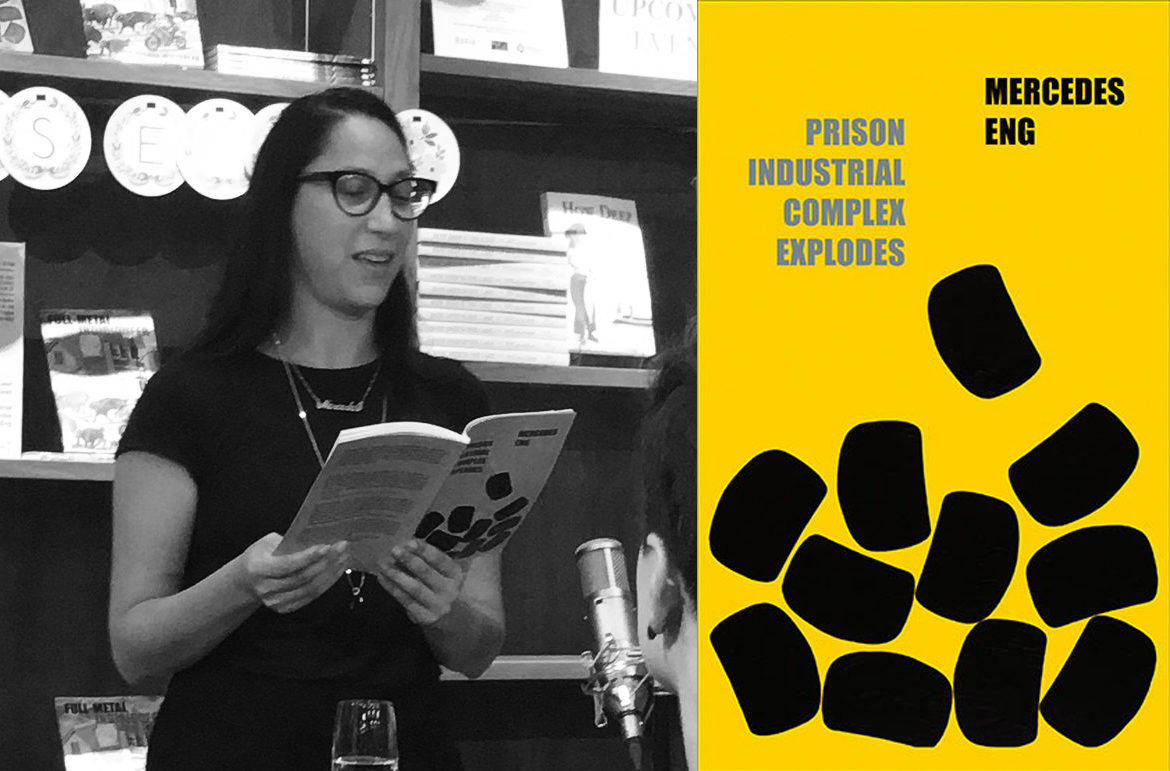Poetic Licence is a special Read Local BC column for National Poetry Month. Each column features one poet and a snapshot into their bookish world. Mercedes Eng‘s poetry book, Prison Industrial Complex Explodes (Talonbooks), is a finalist for the 2018 Dorothy Livesay Poetry Prize.
How do you write your first draft of a poem—by hand, on a computer, in your head?
All three, but mostly the computer. My poetry is research-based and deploys a lot of found text so it makes sense for me to write on the computer right from the beginning, rather than on paper since I’m already online searching for information and source texts.
How much do you edit/rewrite a poem, and how do you decide when it’s done (or good enough)?
I do a lot of editing although as I write this I realize I haven’t looked at someone else’s editing process so I don’t know what “a lot” is. My two books of poetry are both in the form of the documentary long poem, and sometimes parts of poems come fast and furious. One of my favourite parts of Mercenary English is “weapons” which spilled out of me in a hot little minute, and didn’t require hardly any editing.
However, when I’m working with found text, the editing/rewriting process takes longer because I’m trying to maintain the voice/discourse of the found text while distilling it down to its most salient parts, and because I have to figure out what will precede or follow it while maintaining the tension and cohesiveness of 100-page poem.
The latter part of the question of knowing when a poem is done is harder to answer. I mean, does the poem do what it needs to do?—kick people in the face, illuminate, bear witness, document, honour—and does the poem do what it needs to do well?—with guts and heart and lyricism and grounding and beauty—if so, then the poem is done.
Who would you say are the greatest influences on your work?
All of the women I worked low track with; the dispossessed and displaced peoples of the Downtown Eastside; my father; all of the prisoners I encountered while visiting my father in prison; my immediate blood fam; my writing fam: Cecily Nicholson, Hari Alluri, Cynthia Dewi Oka; Annharte, Madeline Terbasket, Lily Shinde, Theresa Hak Kyung Cha, Fred Moten, Angela Davis, Toni Morrison, and Eden Robinson.
As a reader of poetry, what attracts you to a poem, or resonates with you?
Often who wrote it. Most of the poetry I read–I’m including rap music here too–is written by Indigenous peoples, Black people, and people of colour who are writing about colonialism, capitalism, racism, incarceration, sexism, art. Sometimes I’m drawn to the form of a poem, or the idea informing the poem.
Show us your #Shelfie!

What do you eat/drink while writing and why?
(If) Eating: it’s mostly snacking and I love salty meaty snacks. Drinking: in the day, coffee or green tea, although I’m trying not to drink coffee anymore because I drink it with too much cream and honey and the calories and caffeine allow me to stave off eating until too late in the day; at night, whiskey. Why: the first two because of the morning routine and the energy they give me; the last because what I write about—murder, war, genocide, incarceration, racism—is brutal.
Where do you like to read?
Hmmm. I can read pretty much anywhere and I’m almost always carrying a book with me, but I love reading outside when the weather allows.
Who is a poet you think everyone should read?
Most definitely Billy-Ray Belcourt. Their first book of poetry, This Wound is a World, is beautiful.
Mercedes Eng teaches and writes in Vancouver, on unceded Musqueam, Squamish, and Tsleil-Waututh territories. She is the author of Mercenary English (CUE Books, 2013; Mercenary Press, 2016), a long poem about violence and resistance in the Downtown Eastside neighbourhood of Vancouver. Mercedes’ writing has appeared in Jacket 2, The Downtown East, The Volcano, on the sides of the Burrard and Granville Bridges as contributions to public art projects, and in the collectively produced chapbooks, r/ally (No One Is Illegal), Surveillance, and M’aidez (Press Release).
Her latest poetry book, Prison Industrial Complex Explodes (Talonbooks, 2017), is a finalist for the 2018 Dorothy Livesay Poetry Prize. She is currently working on a women’s prison reader and a detective novel set in her grandfather’s Chinatown supper club, circa 1948.
Check out more 2018 National Poetry Month features here.

